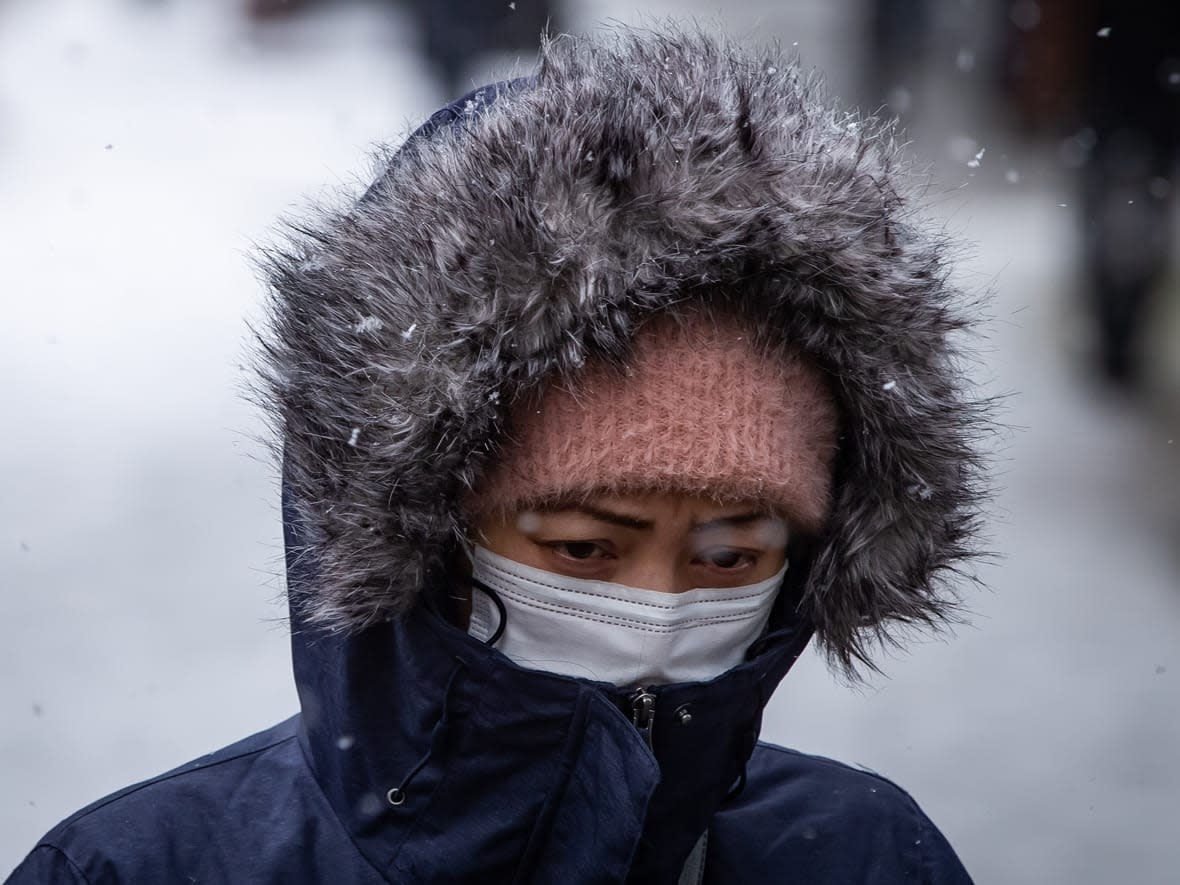Snow blankets B.C.'s South Coast, prompting warnings for drivers to commute with caution

If you live on British Columbia's South Coast, give yourself a bit of extra time for your Monday morning commute as the roads are likely to be slick with snow.
Environment Canada has issued a slew of snowfall warnings for Vancouver Island, as well as special weather alerts for the Lower Mainland, the Sunshine Coast and Howe Sound. A winter storm watch is also in effect for the North Coast, including the communities of Stewart, Terrace and Kitimat.
Vancouver Island is forecast to get the biggest dump of snow, with up to 25 centimetres in the forecast for inland communities and up to 15 centimetres for coastal residents.
Environment Canada meteorologist Kenneth Chan said he expects seven centimetres to fall in the Fraser Valley by midday Monday. Some Valley residents are still reeling from the impact of historic flooding that devastated parts of the region last month.
Schools in the north and east of the Island are closed Monday, including those in school districts 85 (Port McNeill), 72 (Campbell River) and 71 (Comox Valley). North Island College has also cancelled classes at Mixalakwila campus in Port Hardy, while all other locations remain open.
The weather has also forced the closure of all schools on the Sunshine Coast (School District 46).
According to Environment Canada, a strong frontal system from the Pacific, coupled with cold surface temperatures, is responsible for the snow, which is expected to gradually transition to rain or wet snow mixed with rain and taper off in most locations by Monday evening.
In the Lower Mainland, the snow should turn to light rain by midday, according to Chan.
Temperatures in Metro Vancouver are not expected to dip below freezing Monday, with both the day and overnight high forecast at 3 C. On Vancouver Island, the Greater Victoria region is expected to drop to 4 C overnight.
On the North Coast, temperatures are hovering below freezing and are forecast to drop to -7 C overnight.
As of 8 a.m. PT, B.C. Hydro crews were dealing with numerous power outages in the Lower Mainland and on the Sunshine Coast affecting more than 7,700 customers. Over 7,600 customers are currently without power on north Vancouver Island.
Drive smart
Environment Canada is warning drivers to be alert on the roads and adjust to "quickly changing and deteriorating travel conditions."
Josh Smythe, an automotive specialist for BCAA, says one of the biggest concerns is people underestimating the weather conditions and overestimating their driving skills.
"More often than not, it's a combination of both," said Smythe. "Weather can change very rapidly."
Some tips for snowy weather including knocking all the snow off your vehicle — not just your windshield, make sure all your lights are exposed and on to be seen.
"Leave a little bit earlier to give yourself some extra time," he said.
The awareness of your surroundings is very important. Smythe recommends not over-relying on features like cruise control.
"When you shut these off, it forces you to pay more attention to the road," he said.
If you do start skidding, stay calm. It's important not to make sudden movements with the steering wheel or hammer on the brakes so you can maintain control, said Smythe.
"The rule of thumb is to steer into the direction you are expecting to travel. Keep your wheels pointing in the direction you want to go in," he said.
The snow could have a significant impact on rush hour traffic in urban areas.
Darren Ell, general manager for Mainroad Lower Mainland Contracting, said crews have been putting salt brine on the roads and were scheduled to start plowing once the snow started to accumulate.
Ell is reminding drivers to slow down and stay back if they see a snowplow on the road.
"Stay back at least six or seven car lengths from a snowplow because there's chemicals coming out of the back end," Ell said. "Don't pass on the right-hand side. The snow is being pushed out to the right and the trucks have big wing plows that are hard to see. So, please stay away."
To keep up to date on road conditions around the province, visit DriveBC.ca.


